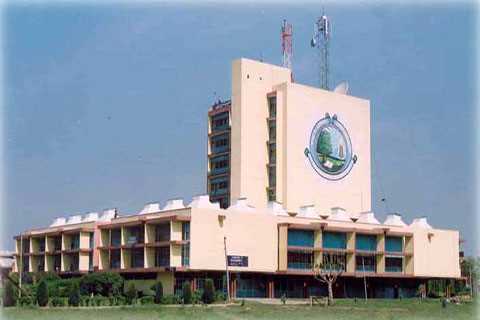An international webinar on “Social Prescribing and its importance in transforming patient-doctor relationship” was organized by the UGC-Human Resource Development Centre, University of Kashmir on Tuesday.
During the webinar a lecture was delivered on this topic by Dr. Tasaduq Hussain Mir, who is at present working as faculty in the Department of Family and Community Medicine at UT Southwestern Medical Center besides being Chief of the adult inpatient medicine service at Parkland Hospital, Dallas, USA.
Dr. Tasaduq Mir discussed at length about the terminology, importance, barriers, benefits, prospects and challenges of social prescribing in future in the fast changing global scenario particularly in light of the coronavirus pandemic.
He also explained how social prescribing can bring a paradigm shift in the doctor-patient relationship that seems to be getting strained day-by-day particularly in healthcare settings of the developing nations as a result of increasing workload and low doctor-patient ratio. “Under such circumstance social prescribing provides a silver lining in the dark clouds because by addressing social determinants of health it reaches out to the non-clinical root cause of the health problems”, he said.
Dr. Tasaduq further elaborated that by managing patients suffering from complex physical and mental health problems, financial difficulties, social and emotional problems, substance abuse and chaotic lifestyles, social prescribing transforms healthcare from physician-centered care to the patient-centered care.
Speaking at this occasion Prof. Shabir Ahmad Bhat, Director HRDC said that it is being increasingly recognized that peoples’ health is primarily determined by a whole range of socio-economic and environmental factors, and social prescribing is designed to support and address peoples’ needs in a holistic way. He further added that a lot of research has been conducted in this area and there is emerging evidence that social prescribing can lead to positive health and well-being outcomes besides improvement in overall quality of life. Prof. Shabir expressed satisfaction over the deliberations held during the webinar and hoped that it might have benefited a whole lot of people who participated from different parts of the world.
Coordinator, HRDC, Dr. Mohammad Ishaq Geer expressed his gratitude to the speaker as well as the participants for participating in the webinar and expressed hope that social prescribing will be adopted and implemented in our local healthcare settings too. He added that the goals of social prescribing are to reduce the rise of healthcare costs and easing pressure of general practice clinics. “Doctors must refer some of their patients to a social prescribing specialist or aid workers who can then suggest local social groups including social enterprises, community businesses and local volunteer groups” he said. Dr. Geer further said that owing to the fact that compared to the doctor-patient ratio of 1:2000 in India, as against WHO recommendation of 1:1000, J&K has one allopathic doctor for 3866 people, thus making social prescribing even more relevant and desirable to us.
